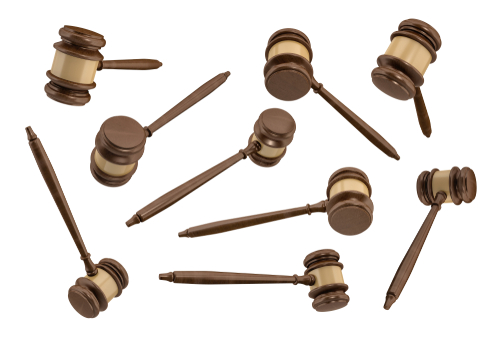8th Circuit allows Iowa book ban to take effect but rules for challengers on First Amendment issue

A federal appeals court on Friday allowed an Iowa law to take effect that polices books in school libraries, saying a federal judge who blocked the law erred in his analysis. (Image from Shutterstock)
A federal appeals court on Friday allowed an Iowa law to take effect that polices books in school libraries, saying a federal judge who blocked the law erred in his analysis.
The 8th U.S. Circuit Court of Appeals at St. Louis ruled in an Aug. 9 opinion by Judge Ralph R. Erickson, an appointee of former President Donald Trump.
The Des Moines Register, Publishers Weekly and Education Week have coverage.
The 8th Circuit lifted a preliminary injunction imposed in December by U.S. District Judge Stephen H. Locher of the Southern District of Iowa that had blocked certain provisions of the law known as Senate File 496.
Locher blocked provisions that ban books in school libraries that are not age-appropriate and that bar instruction relating to gender identity or sexual orientation to students through the sixth grade.
According to the Des Moines Register, 3,400 books were removed from schools in response to the law.
The plaintiffs can still pursue an injunction on remand based on a facial and as-applied challenge to the law, the appeals court said.
The plaintiffs had challenged the law on its face, rather than in its application. A facial challenge requires consideration of activities allowed under the law and those that are banned or regulated, the appeals court said. The next step is to determine which applications violate the First Amendment and then to conduct a weighing process.
In the weighing process, Locher compared the number of books justifying restrictions with the number said to have been wrongly swept up by the restrictions. He should have considered whether unconstitutional applications of the law are substantial compared to constitutional ones, the appeals court said.
Despite lifting the injunction, the 8th Circuit ruled for the challengers on issues of standing and government speech.
The government had argued that plaintiffs challenging the law did not have standing to sue because the removal of books is government speech. Under the government speech doctrine, government speech does not have to remain viewpoint-neutral.
But the appeals court ruled that book removal is not government speech.
“Contrary to defendants’ contention,” Erickson wrote, “the Supreme Court has not extended the government speech doctrine to the placement and removal of books in public school libraries.”
Because the plaintiffs face a potential injury, they have standing to sue, the appeal court concluded.
Erickson also said a transgender student in grade school had standing to challenge the instruction provision because the school shut down the Genders & Sexualities Alliance club in which the child participated.
“Shutting down a voluntary, extracurricular club because of its views can impair the First Amendment’s right to expressive freedom of association,” Erickson wrote.
While ruling for plaintiffs on the government speech issue, the appeals court signaled approval of the library provision’s purposes.
The 8th circuit said it agreed with Locher that the library provision “is a viewpoint-neutral, content-based, age-appropriate restriction on the content of public school libraries.”
In conducting a review, the appeals court said, it is important “to bear in mind that Iowa is not required to tolerate speech that undermines or is inconsistent with its central mission of educating Iowa children.”
“The purpose of public school libraries is to advance the school curriculum—that is, to facilitate the pedagogical mission of the school, which may involve some limitation of expression,” the 8th Circuit added.
The appeals court also said Locher was wrong to conclude that the ban on instruction regarding gender identity and sexual orientation could only be interpreted in an “absurd” manner.
“The district court imparted its interpretation without referencing several canons of construction that may have revealed a narrower, reasonable interpretation,” the appeals court said.
The 8th Circuit ruled in two combined cases, GLBT Youth in Iowa Schools Task Force v. Reynolds and Penguin Random House v. Robbins.



